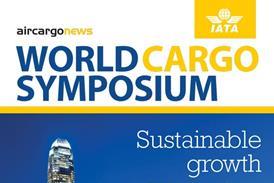AIR Cargo News reports on new cargo developments at airports around the world this week.
In Europe, Fraport (pictured) saw airfreight volume grow by 4.3 per cent to 170,564 tonnes in February. Vienna International Airport experienced a 1.2 per cent lift in cargo movements for the month.
In the US, a twin-engine turboprop freighter slid off the main runway at Boeing Field in Washington on 10 March, forcing incoming planes to divert to Sea-Tac Airport. The aircraft experienced a landing gear malfunction, but no one was hurt.
Phoenix Sky Harbor International Airport has recorded high January numbers, handling 24,625 tons of freight and mail in January, a 16.3 per cent increase over January 2010.
Officials at O’Hare International Airport in Chicago will begin accepting bids on 16 March for work on a proposed second new runway. Work includes construction of six taxiways, installation of drainage systems and the demolition of existing buildings for FedEx and United Cargo.
China, in the meantime, has its own development schedule. The nation wants to add 45 airports to its current 220. China’s federal and state agencies are looking to draw in private investors to help cover the costs of improving air cargo handling facilities and transportation infrastructure overall. Airfreight volumes through China’s airports grew by around 19 per cent last year and IATA expects China’s air cargo throughput will grow by 11.7 per cent a year, from 2.1 million tons in 2009 to 3.8 million tons in 2014.
Operations came to a temporary standstill in Nigeria on 10 March. Flight operations were temporarily disrupted at the Sam Mbakwe International Cargo Airport following a protest by women over alleged malicious destruction of their farm crops by contractors handling the perimeter fencing of the airport. For nearly two hours over 100 women took over the runway causing a diversions and delays in flights.
London Heathrow, meanwhile, has a more potent problem. Six million potentially dangerous fake and unlicensed Viagra tablets were seized at the airport last year.
The counterfeit drugs, discovered in freight deliveries, were among 8.5 million doses, worth around £13 million (US$20.8 million), seized across the country in 2010.




